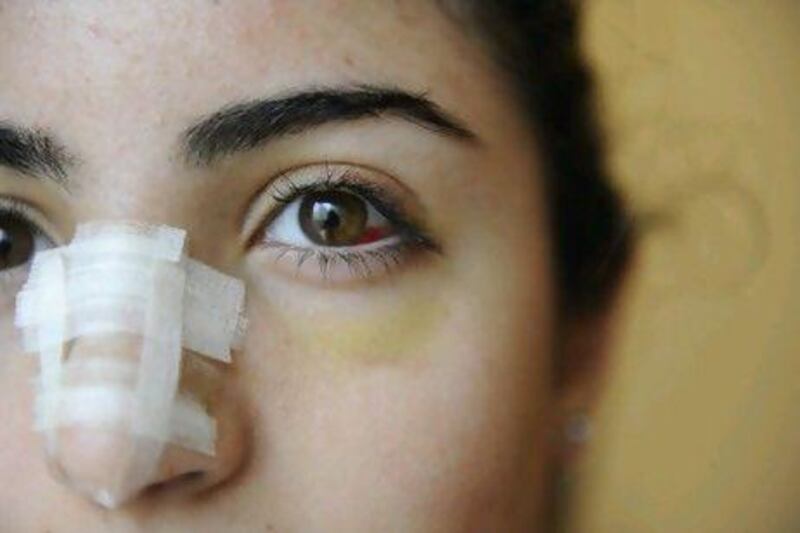The phrase "kteer jeune" means "very young" in Arabic and French, and in Lebanon, girls start looking after themselves as soon as they can walk.
"Leave a girl without food or water, but don't deprive her of her make-up, hair and nails," says Lydia, a beautician at the Papillon Rouge beauty salon in Beirut.
Lebanon has earned a reputation of being home to some of the most beautiful women in the world. Girls are influenced by their mothers from a young age; they have beauty parties and regular spa appointments. Beirut is full of beauty salons where treatments are seen not as pampering sessions, but as a way of life, even for the busiest mother and the poorest resident.
Maya Hilal, the founder and owner of Spa-Tacular Salon and Spa, which opened in July 2009, aims her business at children five years and older. The idea was inspired by her daughters' visits to the hairdresser.
"It was a very bad experience, the place was dull, there was no colour," she says. "So I thought, why don't I just do a place specifically for kids?" Hilal says she is meeting a social need and creating a cheerful place for children.
"It's nice during holidays, during weekends; it's a pampering thing, and a hygiene thing. It's the way you bring up your kids."
The First National Bank in Lebanon offers plastic surgery loans to women who are under the age of 64 and employed, making the surgeon's knife accessible to almost everyone.
Lydia, from Papillon Rouge, explains: "This scheme benefits everyone - the bank because there are so many people wanting to do it, the women because they look better, and the doctors. Nowadays, if people want to go into a successful career, they're advised to become a plastic surgeon."
Carine, 17, fell into the craze of rhinoplasty operations one summer. "Everyone did it, they came back to school with Band-Aids on their nose. So I said, OK, I hate my nose too, it's not a big deal [to have the surgery]."
Her mother, Diana, adds: "You have a lot of pressure here, and I don't think we're happy. You have to follow the majority; it's a lack of personality some people have. When I travel abroad, I don't care. I get into my shorts and T-shirt, and I feel so happy, but here in Lebanon, I care, and I don't know why".
Hilal is adamant she is not creating expectations in the very young but is simply providing a service that is in demand.
"I'm not encouraging anything, the new generation is doing it anyway," she says. "No matter what we do, they are born much more aware, much more alert and much more grown up. So whatever we do, we're not going to slow anything down."






